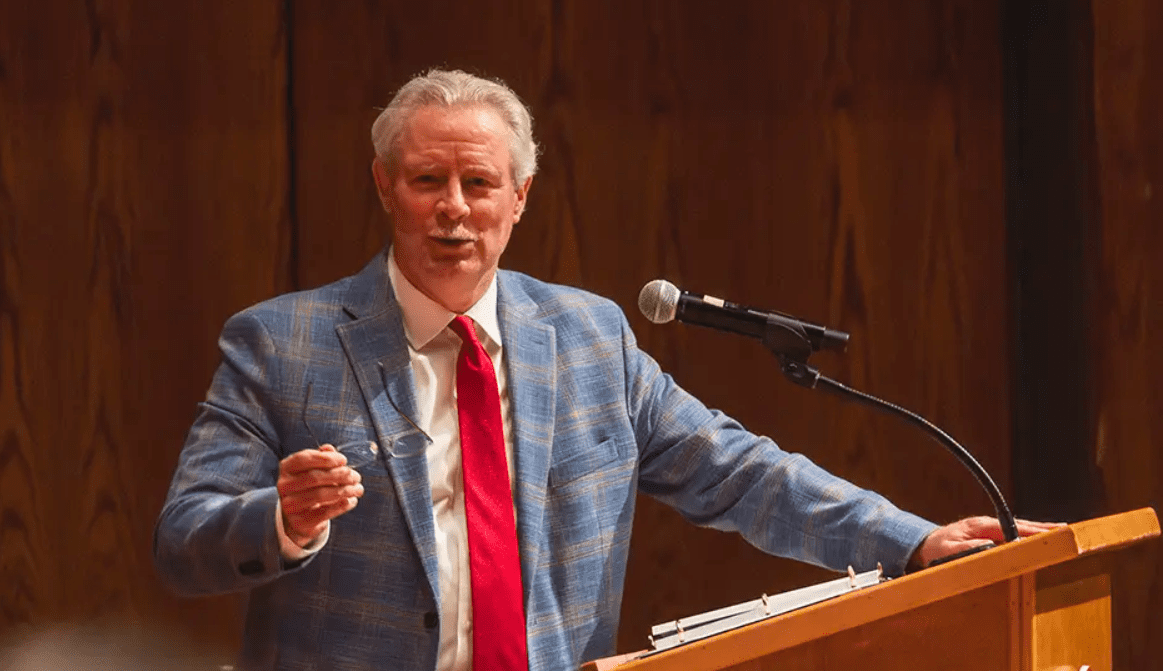RELEASE
Wicker Continues Discussion for Larger Naval Fleet
Seapower Chairman Highlights Growing Need for Bigger Navy to Meet Worldwide Threats
WASHINGTON – U.S. Senator Roger Wicker, R-Miss., Chairman of the Senate Seapower Subcommittee, has delivered the second in a series of scheduled remarks aimed at making the case for a 355-ship Navy. Wicker’s speech today focused primarily on what the Navy does for America and why the current naval fleet is too small to meet current and emerging challenges.
Key excerpts of Wicker’s speech include:
“In early January of this year, a strange and profoundly disturbing thing happened. For the first time since World War II, the United States had no carriers deployed anywhere. None in the Persian Gulf. None in the Mediterranean. None in the Western Pacific. There is a gap in our global carrier presence, and there is a gap in our fleet.”
“We have ignored the great naval competition taking place elsewhere and the fact that it is accelerating. We have taken our Navy – and our Sailors and Marines – for granted. Simply put, the Navy we have today is too small. We cannot accomplish the critical missions we have by preserving the status quo. Right now, we have about 277 ships in our fleet. The Navy recently increased its requirement to 355 ships.”
“The global presence of Navy ships matters to American economic prosperity and trade. Ninety percent of global trade is seaborne. Maritime traffic has increased by 400 percent over the past quarter-century. In addition to commerce, nearly all intercontinental telecommunications transit a web of undersea cables.
“A strong Navy deters aggressive behavior and reassures our allies as the nation’s first-on-the-scene force. A strong Navy can help keep bad situations from spiraling out of control and getting worse. For example, the President recently dispatched multiple carrier strike groups to the Sea of Japan following North Korea’s missile tests. A mix of ships gives our Commander in Chief a range of military options, and their deployment to areas of instability can send a message of resolve to our friends and foes alike.
“If deterrence fails, our naval forces can provide a decisive response to aggression. Surface ships, submarines, and the aircraft on the carriers can launch missile strikes, control air and sea traffic, and intercept missile threats. Recent U.S. action in Syria is a good example. Using destroyers in the Mediterranean, the Commander in Chief delivered precision strikes against Syrian airfields. He enforced the red line against outlawed chemical weapons, and President Assad has not crossed that red line again.”
“Accomplishing these missions – as the nation’s sentinel and first responder – requires a big Navy. Admiral John Richardson, the Chief of Naval Operations, put it best in his Future Navy white paper released last month: ‘Numbers matter. The number of ships in the Navy’s fleet determines where we can be, and being there is a key to naval power.’ Again, the current fleet – about 275 ships – is way too small.”
“China is building a modern navy capable of projecting global power. China is modernizing every type of ship and submarine in its fleet. It commissioned 18 ships last year. In April, China launched its first domestically built carrier and plans to build at least six more. By 2030, China will have more than twice as many attack submarines and four times as many small surface ships as the United States. Beijing is developing its first overseas naval base in the Horn of Africa. China’s naval buildup may attempt to push the United States further out of the Western Pacific, away from critical trade chokepoints and our allies in South Korea and Japan.”
“Naval competition is a fact. China, Russia, North Korea, and Iran have clearly been building up the size and sophistication of their fleets. The CNO has a word to describe the pace of competition: exponential. As the CNO puts it: ‘Time is an unforgiving characteristic of the [maritime] environment. Things are moving faster, including our competitors.’
“Let’s start competing again. Building a larger fleet is a national project. It will require a sustained commitment by the President, Congress, and the Department of Defense. As Chairman of the Seapower Subcommittee, I intend to begin laying a firm foundation this year for a significant build-up in the future. We have no time to waste.”
6/15/17







